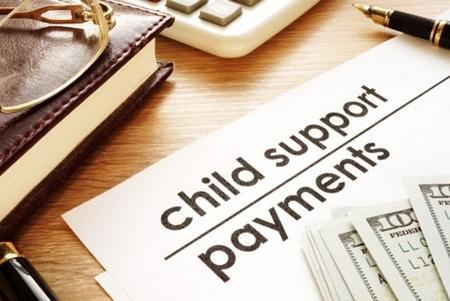Recent Blog Posts
What if My Spouse is Alienating My Child From Me?
 Even after a divorce, it is important for parents to maintain their relationships with their children. This usually means that there is still contact with the other parent–even if it is hostile in nature. Sometimes, the relationship between former spouses is so hostile that one spouse will attempt to turn a child against the other spouse in an effort to retaliate against them or get revenge.
Even after a divorce, it is important for parents to maintain their relationships with their children. This usually means that there is still contact with the other parent–even if it is hostile in nature. Sometimes, the relationship between former spouses is so hostile that one spouse will attempt to turn a child against the other spouse in an effort to retaliate against them or get revenge.
In addition to being extremely damaging to the psychological well-being of a child, parental alienation is painful and confusing for the parent towards whom the alienating behavior is directed. A previously happy and content child may suddenly become withdrawn or angry and begin repeating ugly language they learned from the alienating parent.
Although Illinois law conspicuously rejects the term “parental alienation syndrome,” due to its lack of specificity, the law instead has a host of procedures and statutes to inhibit what might be considered parental alienation.
What Happens to Pets in an Illinois Divorce?
 When you are in the middle of a divorce, there can be so many things to manage and negotiate that the custody of a pet may not immediately come to mind. However, if you are like most pet owners, your dog or cat is part of your family, and you care deeply about its well-being. You should be sure to understand your options for ensuring that your pet remains in your life after the divorce.
When you are in the middle of a divorce, there can be so many things to manage and negotiate that the custody of a pet may not immediately come to mind. However, if you are like most pet owners, your dog or cat is part of your family, and you care deeply about its well-being. You should be sure to understand your options for ensuring that your pet remains in your life after the divorce.
Illinois Law Regarding Pets in a Divorce
In January of 2018, Illinois law changed to treat pets more like children, giving couples the option to share custody of their pets after a divorce. Prior to this law, pets were considered regular property like a house or a car. This meant they would have to be divided up along with all the other assets and given to one spouse or the other. The spouse who was not awarded ownership of a pet had no legal recourse to do anything and was left to deal with their loss.
Four Tips for Making Friends After Divorce
 One of the most common but least discussed challenges of divorce is the loss of a shared social group. Adding to the sense of loss from a divorce, friends may pick sides, and precious relationships may be lost.
One of the most common but least discussed challenges of divorce is the loss of a shared social group. Adding to the sense of loss from a divorce, friends may pick sides, and precious relationships may be lost.
However, life does go on after divorce, and divorced individuals do make new friends and start meaningful relationships. Adjusting to a new lifestyle may be difficult, but it is important. Here are some tips for building friendships after divorce.
-
Go to a place of worship – If you’re religiously inclined (and even if you are not), a house of worship can be a great place to meet people and make new friends. Religious communities will often have organizations designed to help single, divorced, or widowed members meet people within their age group. You can also take part in events like potlucks and holiday celebrations, so you do not have to be alone on days you used to spend with your spouse.
How Can Delinquent Child Support be Recovered in Illinois?
 Child support can be difficult to negotiate for parents who are no longer in a relationship. Even after a child support plan is put in place, the parent who is responsible for paying child support may purposely or accidentally halt payments. Regardless of the reason for stopping child support payments, the receiving parent and child(ren) are put in a difficult situation when they cannot get the financial support they need. If the paying parent has stopped making payments, you have options to get the child support you need.
Child support can be difficult to negotiate for parents who are no longer in a relationship. Even after a child support plan is put in place, the parent who is responsible for paying child support may purposely or accidentally halt payments. Regardless of the reason for stopping child support payments, the receiving parent and child(ren) are put in a difficult situation when they cannot get the financial support they need. If the paying parent has stopped making payments, you have options to get the child support you need.
Work Directly With the Paying Parent
Try to work things out with the delinquent co-parent. Do not seek to withhold parenting time from the spouse who is delinquent on payments, or otherwise seek revenge. Even if there is an enforceable court order, co-parents may be able to work something out together. If it does come to a court battle, do not jeopardize your case by neglecting your responsibilities under the child visitation order.
Can Marijuana Use Affect Child Custody Decisions in Illinois?
 All over the U.S., individual states are changing their laws around marijuana use, making it legal at the state level even as it remains illegal under federal law. In Illinois, Governor Pritzker signed the Illinois Cannabis Regulation and Tax Act into law in 2019, changing much about how marijuana is regulated and treated under the law.
All over the U.S., individual states are changing their laws around marijuana use, making it legal at the state level even as it remains illegal under federal law. In Illinois, Governor Pritzker signed the Illinois Cannabis Regulation and Tax Act into law in 2019, changing much about how marijuana is regulated and treated under the law.
Because of this new law, marijuana can no longer be used to discriminate against parents when it comes to custody considerations–with certain limitations. However, stereotypes of marijuana users are still very much a part of society, and bias exists from spouses and judges alike. Here are a few things to consider when wondering whether your or your ex’s marijuana use could impact child custody decisions.
Keep Marijuana Away From Children
Who Pays for College when Parents are Divorced in Illinois?
 Parental financial support doesn’t necessarily end when a child turns 18. Although college may not be an option every child pursues, if a child does decide to go to college, divorced and unmarried parents could be responsible under Illinois law for sharing the expense of their child’s continued education. This is considered “non-minor support,” and the law in this regard is complex and less developed than child support for minor children. Typically, college expenses are addressed in a divorce agreement (or parenting agreement, for non-married parents), but as the expenses and expectations of college change rapidly, such an agreement is often left until the child reaches college age.
Parental financial support doesn’t necessarily end when a child turns 18. Although college may not be an option every child pursues, if a child does decide to go to college, divorced and unmarried parents could be responsible under Illinois law for sharing the expense of their child’s continued education. This is considered “non-minor support,” and the law in this regard is complex and less developed than child support for minor children. Typically, college expenses are addressed in a divorce agreement (or parenting agreement, for non-married parents), but as the expenses and expectations of college change rapidly, such an agreement is often left until the child reaches college age.
Considerations in an Order for College-Related Expenses
Here are some of the factors a court will take into account when deciding how parents should contribute to a child’s educational expenses:
How Can Tax Issues Affect Property Division in an Illinois Divorce?
 When going through a divorce, you may not have future consequences at the top of your list of priorities. Many people either forget about the long-term consequences of divorce or ignore them. Either way, not considering the long-term impact of your decisions can cause more stress in the long run. The downfall for many people going through a divorce occurs during the asset division process. You may be focused on your assets and fighting to get what you believe you deserve in the moment, but it is also necessary to understand the long-term effects of your decisions, including the implications for your taxes after divorce.
When going through a divorce, you may not have future consequences at the top of your list of priorities. Many people either forget about the long-term consequences of divorce or ignore them. Either way, not considering the long-term impact of your decisions can cause more stress in the long run. The downfall for many people going through a divorce occurs during the asset division process. You may be focused on your assets and fighting to get what you believe you deserve in the moment, but it is also necessary to understand the long-term effects of your decisions, including the implications for your taxes after divorce.
Things to Keep in Mind About Taxes During Divorce
When it comes to dividing your property and debts, taxes should also be a part of the equation. Even if tax issues are not an immediate concern, they can impact your overall financial health in the long run. When you go through the asset division process, here are a few things you should take into consideration concerning your tax situation:
What If We Forget Something in Our Illinois Divorce Settlement?
 When you are going through a divorce, it can feel like the list of things you have to do is neverending. There are dozens of issues that must be addressed before you can finalize your divorce, and resolving them often takes some time. The day you are finally able to sign your name on the dotted line is the day that you can officially say you are divorced—a sigh of relief for many. But what happens when you suddenly remember something that was left out of the divorce agreement? Can you go back and amend your agreement, even if it has already been finalized? It can be difficult to amend a divorce agreement, but it is not impossible with the help of a knowledgeable Illinois divorce lawyer.
When you are going through a divorce, it can feel like the list of things you have to do is neverending. There are dozens of issues that must be addressed before you can finalize your divorce, and resolving them often takes some time. The day you are finally able to sign your name on the dotted line is the day that you can officially say you are divorced—a sigh of relief for many. But what happens when you suddenly remember something that was left out of the divorce agreement? Can you go back and amend your agreement, even if it has already been finalized? It can be difficult to amend a divorce agreement, but it is not impossible with the help of a knowledgeable Illinois divorce lawyer.
Modifying Your Divorce Settlement Through Agreement
The court will not allow certain major issues to go unresolved before a divorce is finalized. These issues include the division of marital property, orders for child support and spousal support, and the allocation of parenting time and parental responsibilities. However, there may be smaller details that slip through the cracks, perhaps regarding the specifics of your parenting plan. The easiest and most peaceful way to address these issues is to discuss them with your ex-spouse so you can come to an agreement. Just like during the divorce process, coming to a mutual agreement can be much more efficient than fighting a contested battle in court and leaving the decision up to the judge.
Is it Possible For a Parent to Abduct Their Own Child in Illinois?
 Some of the most heated disputes during an Illinois divorce are those that deal with issues concerning the children. In some cases, a parent may use the child as a way to hurt or "get back" at the other parent for whatever reason. In other cases, a parent may just be so worried about the outcome of the allocation of parenting time and parental responsibilities that they decide to take the child without the permission of the other parent before they lose them. If you believe that your child has been abducted or is at risk of being abducted by their other parent, you should speak to an Illinois family law attorney to discuss your options.
Some of the most heated disputes during an Illinois divorce are those that deal with issues concerning the children. In some cases, a parent may use the child as a way to hurt or "get back" at the other parent for whatever reason. In other cases, a parent may just be so worried about the outcome of the allocation of parenting time and parental responsibilities that they decide to take the child without the permission of the other parent before they lose them. If you believe that your child has been abducted or is at risk of being abducted by their other parent, you should speak to an Illinois family law attorney to discuss your options.
Defining Child Abduction
It can be frustrating when your child’s other parent is late to drop off the child or does not exercise their visitation rights consistently. However, in some cases, a parent may act much more irresponsibly than inconsistent drop-offs. In some cases, a parent may go so far as to even abduct the child from their other parent. In the legal context, child abduction is a rather specific act that comes with serious consequences.
How Can I Protect My Credit During My Illinois Divorce?
 Your marital status does not directly affect your credit score. However, that does not mean that it cannot affect it indirectly. It is not uncommon for a person to notice a difference in their credit score during and after a divorce because of all of the financial changes that this process brings. Having a decent credit score is important for a variety of reasons. Your credit score is how lenders determine whether or not they will do business with you. If your credit score takes a hit, you could have difficulty purchasing a vehicle or home, renting a place to live, or opening any other type of line of credit. Protecting your credit score should be a priority at any time, but especially during your divorce.
Your marital status does not directly affect your credit score. However, that does not mean that it cannot affect it indirectly. It is not uncommon for a person to notice a difference in their credit score during and after a divorce because of all of the financial changes that this process brings. Having a decent credit score is important for a variety of reasons. Your credit score is how lenders determine whether or not they will do business with you. If your credit score takes a hit, you could have difficulty purchasing a vehicle or home, renting a place to live, or opening any other type of line of credit. Protecting your credit score should be a priority at any time, but especially during your divorce.
Steps to Take to Protect Your Credit
If you are planning to file for divorce, it is important that you pay attention to your finances. Your entire life is changing, and it is easy for something to slip through the cracks and harm your credit score. Here are a few things you can do to help protect your credit score during your divorce:












